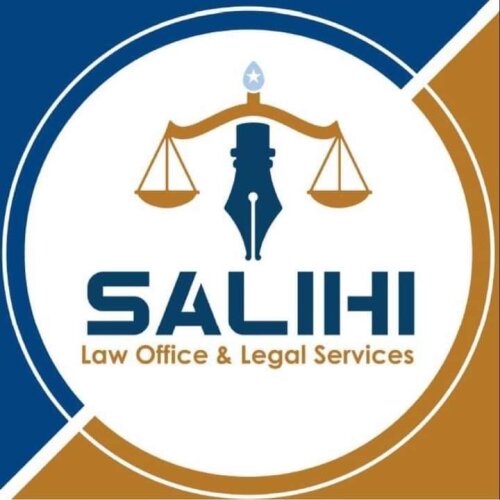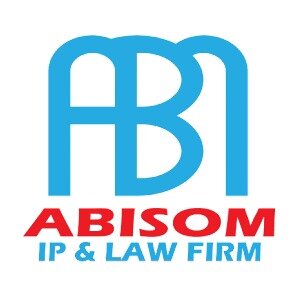Best Government Relations & Lobbying Lawyers in Somalia
Share your needs with us, get contacted by law firms.
Free. Takes 2 min.
Or refine your search by selecting a city:
List of the best lawyers in Somalia
About Government Relations & Lobbying Law in Somalia
Government relations and lobbying in Somalia involve engaging and influencing public policy and decision-making processes. In Somalia, this field is particularly dynamic due to the country's evolving political landscape. Lobbyists and government relations professionals work to advocate for policy changes, represent interest groups, and ensure that their clients' voices are heard in governmental discussions. Understanding the delicate balance of governance and interest representation is crucial, particularly in a country where political structures are continually developing.
Why You May Need a Lawyer
Engaging in government relations and lobbying in Somalia can be complex, often requiring professional legal expertise. Common situations where legal help may be necessary include:
- Understanding and complying with lobbying regulations and government protocols.
- Drafting and negotiating terms for engaging with government bodies or officials.
- Representing interest groups or clients in policy discussions or legislative lobbying efforts.
- Managing disputes or conflicts that arise from lobbying activities.
- Safeguarding against legal liabilities and ensuring compliance with all applicable laws.
Having a lawyer can help navigate these complex situations and ensure ethical and legal compliance in all activities.
Local Laws Overview
The laws governing government relations and lobbying in Somalia are still under development, which can present both opportunities and challenges. Key aspects of the local laws to consider include:
- The Provisional Constitution of Somalia, which provides a framework for governance and citizen engagement in policy processes.
- Laws regulating the transparency and ethics of lobbying efforts, which aim to prevent undue influence and corruption.
- Rules on registering as a lobbyist, where applicable, to ensure transparency and accountability in dealings with government entities.
- Compliance with local governance structures, as Somalia consists of federal, regional, and local government institutions.
- Understanding of customary laws and traditional governance practices that may influence political and advocacy efforts.
Frequently Asked Questions
What is lobbying in the context of Somalia?
Lobbying in Somalia involves influencing government decisions or actions on behalf of an individual, organization, or group to advocate for their interests in public policy.
Is lobbying legal in Somalia?
Yes, lobbying is legal in Somalia; however, it must be conducted in compliance with established laws and ethical guidelines to prevent corruption and undue influence.
Do I need to register as a lobbyist in Somalia?
Whether you need to register depends on the specific activities you engage in and the applicable laws. It is advised to consult a lawyer knowledgeable in local regulations.
How can a lawyer assist in lobbying efforts?
A lawyer can provide legal advice on compliance, help with drafting agreements, represent you in legal disputes, and ensure that your lobbying activities adhere to the law.
What should I consider before engaging in lobbying activities?
Consider understanding the political landscape, legal frameworks, ethical guidelines, and establishing clear objectives for your lobbying efforts.
Are there restrictions on foreign lobbyists in Somalia?
Foreign lobbyists may face additional restrictions and must comply with specific regulations governing foreign entities’ involvement in local governmental affairs.
What ethical guidelines govern lobbying in Somalia?
Ethical guidelines focus on transparency, integrity, and accountability, aiming to ensure that lobbying enhances rather than undermines democratic processes.
Can lobbying influence legislative processes in Somalia?
Yes, lobbying can play a significant role in shaping legislation by providing information and advocating for particular interests or policy changes.
Are there any penalties for non-compliance with lobbying laws?
Penalties could include fines, revocation of lobbying privileges, or other legal actions depending on the severity and nature of the non-compliance.
How has the political situation in Somalia impacted lobbying?
The dynamic political situation creates both challenges and opportunities for lobbying, requiring participants to be adaptable and well-informed about local developments.
Additional Resources
Several resources can offer guidance and support for those seeking legal advice in lobbying and government relations:
- The Ministry of Constitutional Affairs: Provides information on laws and parliamentary activities.
- Somalia's Attorney General's Office: Offers legal oversight and guidance for legal processes.
- Non-Governmental Organizations: Often provide resources and advocacy related to legal and governmental relations.
- Local law firms: Specialized in business and government relations law, offering consultations and legal services.
Next Steps
If you need legal assistance in government relations and lobbying in Somalia, consider the following steps:
- Conduct a preliminary assessment of your needs and objectives.
- Research and contact a legal expert or law firm specializing in government relations and lobbying.
- Prepare necessary documentation and details about your situation for the consultation.
- Engage in discussions with your legal advisor to explore options and strategies.
- Ensure that you understand all legal obligations and ethical considerations in your lobbying efforts.
Lawzana helps you find the best lawyers and law firms in Somalia through a curated and pre-screened list of qualified legal professionals. Our platform offers rankings and detailed profiles of attorneys and law firms, allowing you to compare based on practice areas, including Government Relations & Lobbying, experience, and client feedback.
Each profile includes a description of the firm's areas of practice, client reviews, team members and partners, year of establishment, spoken languages, office locations, contact information, social media presence, and any published articles or resources. Most firms on our platform speak English and are experienced in both local and international legal matters.
Get a quote from top-rated law firms in Somalia — quickly, securely, and without unnecessary hassle.
Disclaimer:
The information provided on this page is for general informational purposes only and does not constitute legal advice. While we strive to ensure the accuracy and relevance of the content, legal information may change over time, and interpretations of the law can vary. You should always consult with a qualified legal professional for advice specific to your situation.
We disclaim all liability for actions taken or not taken based on the content of this page. If you believe any information is incorrect or outdated, please contact us, and we will review and update it where appropriate.
Browse government relations & lobbying law firms by city in Somalia
Refine your search by selecting a city.










